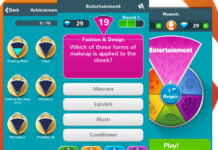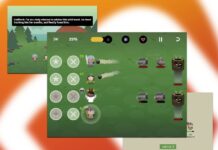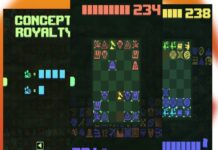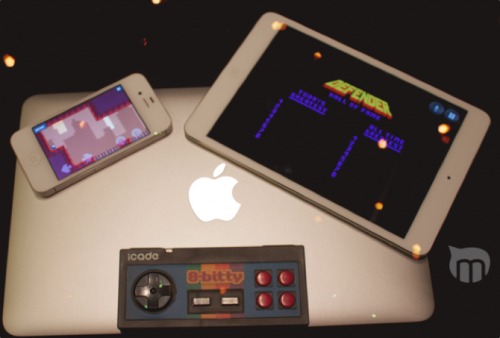
We have an interesting collection of games in this Games of the Week installment to ease you back into things after the long Presidents Day Weekend here in the US. First up is an inventive take on the Threes! clone 2048. we’ll also take a look at a game that captures archery very well, and we’ll close out with a new entry in the survival genre.
2048 Quotes – iOS (Universal)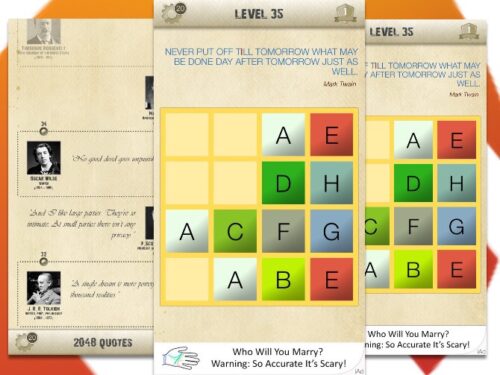
I generally dislike the many games that have made their hay copying Threes! under the guise of riffing on 2048, but occasionally I’ll find one worth checking out that changes the formula enough that it takes on a new dimension. And 2048 Quotes is one such game.
In 2048 Quotes, you combine letters to create the next letter—combine A and A make B, then B and B to make C, and so on. But rather than play endlessly, you complete letters in order to spell out a specific quote.
You don’t have to complete all letters in the quote; the target letters will be highlighted in red when you begin the level, and you check off the letters as you go. This creates a campaign mode, something that you won’t find in other Threes! derivatives. That innovative touch elevates 2048 Quotes above the army of clones.
What’s Good: Campaign mode and letter concept make this more than another clone of Threes!
What Sucks: If you like the endless nature of 2048 or Threes, you may not like the campaign mode.
Buy it? If you’re looking for a new take on 2048 and Threes!, check out 2048 Quotes. Download it on the App Store for free.
Evoland – iOS (Universal)
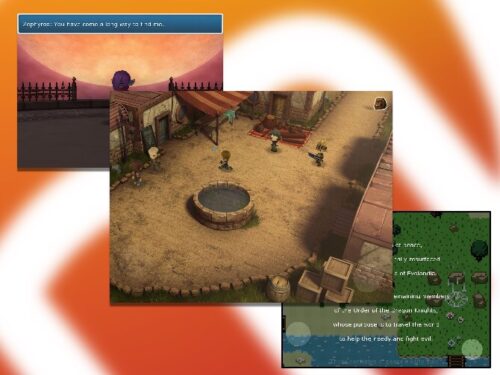
Evoland could pass for an introductory class to the RPG genre and all of its tropes and history. Its cultural references aren’t limited to RPGs, though—Evoland makes references to all sorts of classic games, and it’s really joyful to pick these out as you play.
The story is a mash-up of RPG tropes. You start the game as a nameless hero, and you wander into the story of a world that’s being drained of its life force. Evoland draws heavily from Final Fantasy and Zelda, but it combines those influences into something wholly original and satisfying. As I played, I couldn’t help but wish that I played more games like this.
The game’s mechanics span the entire range of RPGs. evels switch between hack-and-slash Zelda-style fighting, turn-based battles, and even click (tap) battles a la Diablo. The graphics evolve from black and white 2D to a full HD adventure, progressing as you open treasure chests. This figures into mechanics as you play, as some puzzles have you switching back and forth between the styles.
Evoland hits every little nostalgia button I have, but it never feels like it’s pandering. Then again, it might be pandering so hard that it’s overwhelmed my ability to judge it as pandering.
What’s Good: Mixes everything in the history of RPGs in a blender and creates something extraordinary.
What Sucks: Lots of references might go over your head if you’re not into the genre.
Buy it? If you are an RPG fan at all, check out Evoland. Download it on the App Store for $4.99.
Drawn to Kill – iPad
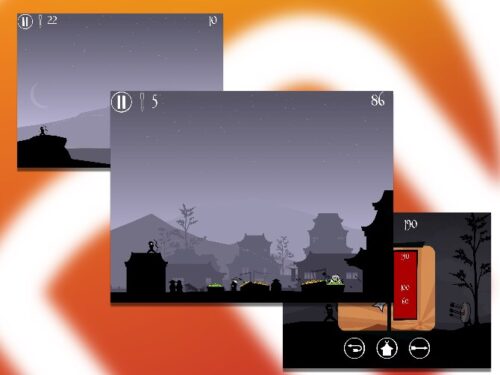
Drawn to Kill might be the best technically designed game I have seen on iOS. Its mechanics are deceptively simple–you play an archer, and as you progress, you alternate between honing your skills in training levels and taking on your enemy, Thundergut.
The game has a super friendly art style. Everything is a little cartoony, but it fits the game. This cartoony style belies the fact that Drawn to Kill is actually rather difficult, but you’ll get plenty of opportunities to improve. I will cede that my struggles may stem from my stupid fingers—the aiming mechanism is very precise.
Under the hood, Drawn to Kill features some very sophisticated physics modeling. Its in-game physics are very realistic, and that realism makes it easier to learn the game’s mechanics by feel.
My only real complaint is that Drawn to Kill has only twenty levels, ten of which are just more difficult versions of the original ten. The challenge of getting three stars on every level balances out the lack of levels, though.
What’s Good: Excellent gameplay mechanics. Art is well done.
What Sucks: Short.
Buy it? If you’re a fan of physics games or just like a challenge, check out Drawn To Kill. Grab it on the App Store for $1.99.
Midnight Star – iOS (Universal)
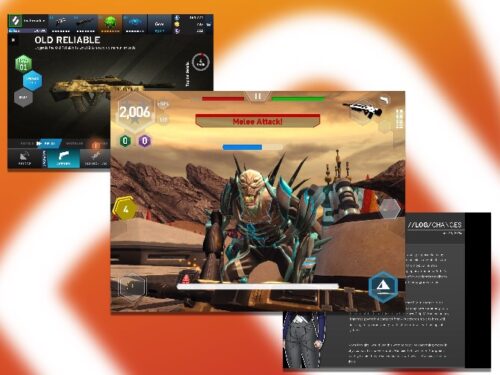
I reviewed the graphic novel preview to Midnight Star a few weeks ago, and I was glad to see that we didn’t have to wait too long for the game itself. Midnight Star’s makers pitched it as a mobile-first sci-fi shooter, though John Scalzi’s involvement in the game’s development is what really piqued my interest.
You play as Charlie Campell, a Marine who survived a mysterious accident that has thrown your ship, the MSRV Joplin, forward in time. As Campbell, you have to fight off hordes of aliens in order to collect enough material to get the Joplin back through the protal it came through.
The story unfolds via a combination of dialog scenes and long prose sections. Action scenes take place on rails: You tap to shoot and tap to change which direction you’re facing. The game plays like a touch version of a light gun game along the lines of Time Crisis or Area 51: It isn’t bad, but if you like to explore, Midnight Star might not be for you.
Industrial Toys, the game’s developer, promises to expand the campaign at some point in the future, but it’s already pretty long as it is.
Midnight Star is a free-to-play title: It isn’t aggressive in its come-on for in-app purchases, but you will have to wait for upgrades unless you pay up. I wouldn’t say that you need to pay to win, but the competitive challenges will likely require more powerful weapons, and the easiest way to get those is through in-app purchases.
What’s Good: Great story. Cool character design.
What Sucks: Very linear gameplay. Pay-to-play influences competitive leaderboards.
Buy it? Sci-Fi fans and people who like arcade shooters should check out Midnight Star. Download it on the App Store for free.
Radiation Island – iOS (Universal)
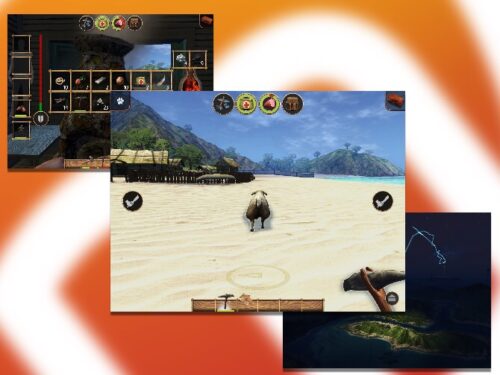
Minecraft has spawned a legion of survival games, many of which take a more gritty approach than Notch’s creation. Radiation Island is just such an game.
You play a sailor marooned on a mysterious island in the aftermath of the Philadelphia Experiment, and while there, you’ll need to survive wolves, crocodiles, and even zombies. As you play, you’ll find journal pages that point you toward areas of the island that will help you discover why you ended up on the island in the first place.
Before you get caught up in the storyline, though, you’ll need to learn how to survive the wilderness. If you try to dig into the mysteries of the island before you have your supplies in order, you won’t long. You will need to craft tools to survive, and the game guides you through the crafting process early on. You make basic stone tools at first, but you eventually learn to melt steel, which allows you to craft more durable tools like shovels and pickaxes.
The survival component is extremely engaging. For instance, you’ll have to hunt rabbits and sheep—and fend off bears and wolves—but how you hunt is up to you. You can use bows and arrows if you prefer, or you can craft traps that allow you to easily capture your prey. And that’s just one example of the expansiveness that Radiation Island provides.
The expansiveness does come at a price, and I ran into some weird bugs as I played. I had to restart my game entirely at one point when my respawn point moved into the roof of a building.
What’s Good: Mixes survival gameplay with a traditional story-driven game. Lots of crafting options.
What Sucks: Some bugs.
Buy it? If you’re look for a survival game with a little bit of Lost mixed in, check out Radiation Island. Pick it up on the App Store for $2.99.



